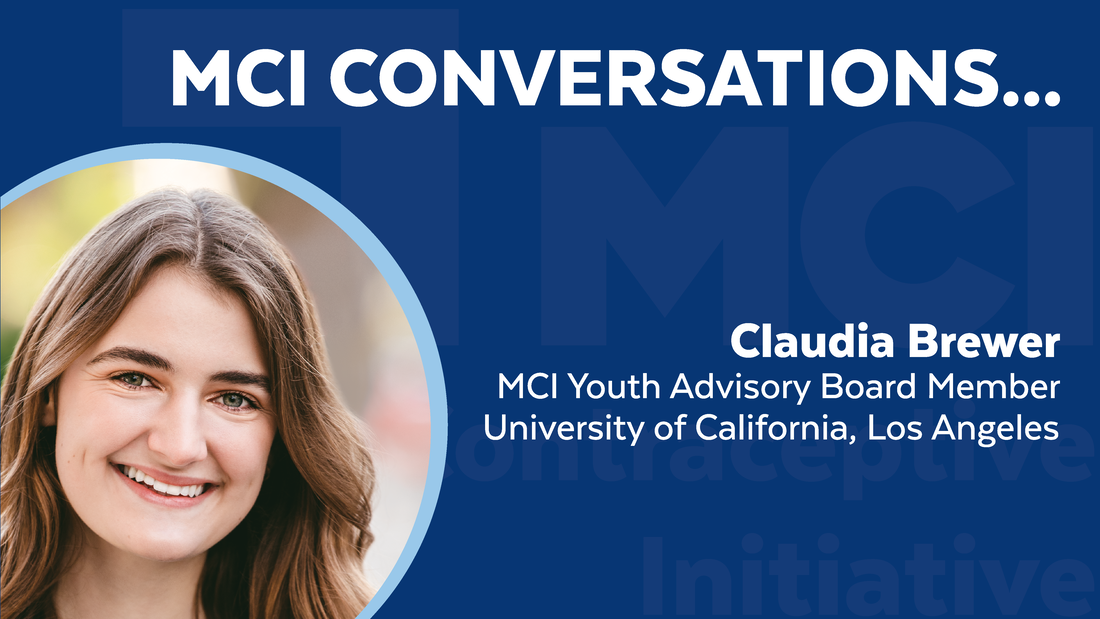|
Our most recent MCI Youth Advisory Board member Claudia Brewer sat down with us to discuss her motivation in joining the board and her interest in male contraception. This blog post shares highlights from that conversation. What do you study/what's your academic background?I’m pursuing a B.S. in Molecular, Cell, and Developmental Biology with a Minor in Society and Genetics at UCLA. My goal in college is to gain a deep understanding of human health, from the complex molecular mechanisms underlying disease to the broader social and political implications of the latest bioengineering technologies. Most of my background is in biological research and healthcare. Most recently, I conducted research on a pathogenic protein associated with Alzheimer’s and other neurodegenerative diseases at the UCSB Neuroscience Research Institute. I currently serve as a scribe for a primary care physician at UCLA Health. Why are you interested in MCI/male contraception? Why do you think male contraception is important? What impact could it have?When I first began researching male contraception, I came across this sentence in a paper: “No new reversible contraceptive options have arisen for men since the development of condoms over 400 years ago.” 400 years?! I couldn’t believe that it had been that long since men had been given any sort of new option to engage in reversible pregnancy prevention with their partners. Throughout that day, I repeated this fact indignantly to some of my friends, who shared my surprise. Gender roles in contraception have remained the same for so long that I don’t think the idea of changing them even crosses people’s minds. Men bring condoms, maybe get a vasectomy later in life, and women do, well... everything else. We’re all used to this uneven distribution of responsibility because it’s all we’ve ever known. Safe sex should be of equal concern for everyone, regardless of their sex or gender. But right now, we just aren’t giving people adequate tools to make this true. Introducing even one new, reversible male contraceptive to the market would be a huge step in the right direction. When I came across MCI, I saw an opportunity to be a small part of that step. What are your career/academic goals/interests?I hope to pursue a career in medicine or public health with a focus on reproductive health. I’m especially interested in delivering healthcare that increases accessibility to contraceptives and addresses reproductive health disparities based on socioeconomic factors. My interests outside of this field include primary care, neurodegenerative disease, and traumatic brain injury. What do you hope to accomplish through your work with MCI?I hope that through my activities with MCI, including educating myself more about the field of male contraceptive research, I am able to engage others in meaningful conversations about gender inequity in contraception. Like I mentioned, I think that because no products have been released, male contraception is not on most people’s radars yet. But if we start spreading the word about this now, with friends and colleagues, we can optimize the social environment for the release of the first reversible male contraceptive. Comments are closed.
|
Categories
All
Archives
June 2024
|
|
|
Donate to Male Contraceptive InitiativeYour generous donation makes a difference!
|
© Male Contraceptive Initiative. All rights reserved.


 RSS Feed
RSS Feed
